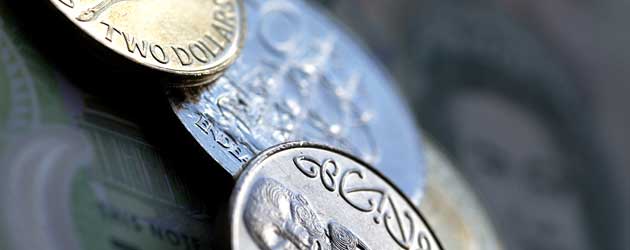
The Pound to New Zealand Dollar exchange rate (GBP/NZD) tanked late last night as Reserve Bank of New Zealand Governor Graeme Wheeler said that the Central Bank intends to raise rates next year as the economy strengthens and Consumer Price inflation accelerates.
The hawkish comments sent GBP/NZD down by 1.1 cents from 1.9580 to 1.9470 – a 3-week low.
The recent low-equity house purchase loan legislation, which limits the number of mortgages that banks are allowed to allocate to consumers with low deposits, is expected to shave off around 4 percentage points of annual house price inflation during the next 12 months. However, with house prices currently 8.5% higher than they were a year ago, the overheating housing market is still the RBNZ’s primary concern.
Accordingly, the Reserve Bank said that “rate increases will likely be required next year”. The New Zealand Dollar soared across the board in reaction to the statement as investors brought forward their projections for a rate hike on the island nation. Markets now expect an increase of around 50 basis points by the end of Q2 2014. This would bring the benchmark interest rate up from the current level of 2.50%, which was maintained last night, to 3.00%.
In reaction to the hawkish comments the ‘Kiwi’ rallied by around 0.7 cents against the US Dollar to a 3-week high, half a cent against the Japanese Yen to a 3-month high, 0.9 cents against the Euro to a 3-week high, 0.7 cents against the Australian Dollar to a 10-day high and 0.6 cents against the Canadian Dollar to a 3-week high.
The RBNZ also revised higher its growth forecasts for the year through March 2014 to 3.2% from 3.0%, citing an expected uptick in construction and consumer spending as rising house prices lead to higher disposable incomes. Annual GDP is projected to peak at 3.5% in 2014 before decelerating to 2.3% by March 2015.
Construction is expected to remain buoyed as the Christchurch earthquake rebuild programme accelerates throughout the year. Inflation is projected to remain below the Bank’s 2.0% mid-range target for over a year, but as economic growth picks up and price pressures begin to emerge the RBNZ intends to preempt inflationary pressures by hiking rates in advance.
The Pound performed extremely well against the majority of its currency rivals yesterday in response to an unexpected drop in the UK Unemployment Rate from 7.8% to 7.7%. The Claimant Count also performed better-than-expected, falling by -32,600 to its lowest level since the beginning of 2009. The robust labour market figures suggest that enhanced confidence in the British economy is having a positive effect on employment and adds further weight to the argument that the Bank of England will be forced to hike interest rates before 2016. However, Sterling was unable to compete with the ‘Kiwi’ Dollar following the RBNZ’s hawkish comments.

Comments are closed.